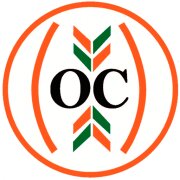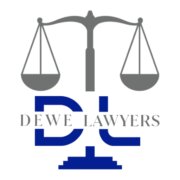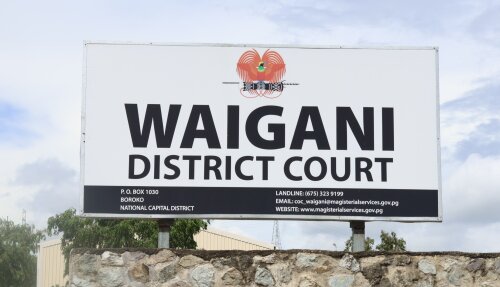Best White Collar Crime Lawyers in Papua New Guinea
Share your needs with us, get contacted by law firms.
Free. Takes 2 min.
Or refine your search by selecting a city:
List of the best lawyers in Papua New Guinea
About White Collar Crime Law in Papua New Guinea
White collar crime refers to non-violent, financially motivated crimes that are typically committed by individuals, businesses, or government officials in the course of their occupational duties. In Papua New Guinea, white collar crimes can include activities such as fraud, bribery, embezzlement, tax evasion, and money laundering. The country faces unique challenges due to its evolving legal system and the need for better enforcement of existing laws, which aim to curb corruption and financial misconduct. With these complexities, understanding the legal landscape of white collar crime in Papua New Guinea is critical for businesses and individuals alike.
Why You May Need a Lawyer
Individuals and businesses may find themselves in need of legal help in several situations related to white collar crime in Papua New Guinea. Common scenarios include:
- Facing allegations or charges related to financial misconduct or fraud.
- Being a victim of a white collar crime, such as embezzlement or credit card fraud.
- Involvement in internal investigations within a company for suspected unethical activities.
- Understanding compliance obligations under local and international anti-corruption laws.
- Navigating the legal landscape for financial crime detection and prevention strategies.
In these circumstances, seeking timely legal assistance can be pivotal in ensuring due process and mitigating risks.
Local Laws Overview
Papua New Guinea has specific laws that govern white collar crime, focusing on transparency, accountability, and integrity in both public and private sectors. Key legislative frameworks include:
- Criminal Code Act: This act outlines various offenses, including fraud, forgery, and embezzlement, along with their penalties.
- Proceeds of Crime Act: This legislation deals with the confiscation and recovery of assets obtained through criminal activities such as money laundering.
- Leadership Code: Aims to regulate the conduct of leaders to prevent corruption and influence peddling within the government.
- Independent Commission Against Corruption (ICAC): Tasked with investigating and prosecuting corruption-related offenses.
Understanding these laws is crucial for compliance and for defending against allegations of white collar criminal activities.
Frequently Asked Questions
What constitutes a white collar crime in Papua New Guinea?
White collar crimes are non-violent, financially motivated offenses, generally involving deceit, violation of trust, or concealment for financial gain.
Who investigates white collar crimes in Papua New Guinea?
The primary body responsible for investigating white collar crimes is the Independent Commission Against Corruption (ICAC), along with other government bodies and police.
What penalties can be imposed for white collar crimes?
Penalties range from fines and restitution to imprisonment, depending on the severity of the offense and specific laws violated.
Can companies be held liable for white collar crimes?
Yes, companies can face legal action, including fines or dissolution, especially if the crime is committed to benefit the company or due to lack of oversight.
Do I have to report suspected white collar crime?
While there is no universal obligation, reporting suspected crime is often encouraged and, in certain cases, required under specific regulations.
How can I protect my business from white collar crime allegations?
Implement strong internal controls, regular audits, compliance programs, and ethics training to mitigate risks and protect against allegations.
What should I do if I'm accused of a white collar crime?
Seek immediate legal counsel to understand your rights and options, and refrain from making statements without representation.
Is there a statute of limitations for white collar crimes?
Yes, however, the time frames vary depending on the specific offense and applicable laws.
Can victims of white collar crime seek compensation?
Victims may pursue civil litigation for damages or compensation in addition to any criminal proceedings.
Are white collar crimes covered by international laws?
Yes, in many cases, especially those involving multinational corporations, international laws such as anti-money laundering regulations may apply.
Additional Resources
For those seeking further information or assistance regarding white collar crime, consider reaching out to the following resources:
- Independent Commission Against Corruption (ICAC): The primary agency for tackling corruption-related offenses.
- Papua New Guinea Law Society: Offers guidance on legal representation and understanding local laws.
- Transparency International PNG: Provides resources and advocacy against corruption practices.
Next Steps
If you require legal assistance related to white collar crime in Papua New Guinea, consider the following steps:
- Consult with a Lawyer: Engage a lawyer with experience in white collar crime to get professional advice tailored to your situation.
- Gather Documentation: Compile relevant documents and evidence related to your case to facilitate the legal process.
- Stay Informed: Keep updated with any changes in legislation and engage with legal forums and seminars for the latest insights.
Acting swiftly and efficiently is crucial to safeguarding your rights and interests in the nuanced field of white collar crime law.
Lawzana helps you find the best lawyers and law firms in Papua New Guinea through a curated and pre-screened list of qualified legal professionals. Our platform offers rankings and detailed profiles of attorneys and law firms, allowing you to compare based on practice areas, including White Collar Crime, experience, and client feedback.
Each profile includes a description of the firm's areas of practice, client reviews, team members and partners, year of establishment, spoken languages, office locations, contact information, social media presence, and any published articles or resources. Most firms on our platform speak English and are experienced in both local and international legal matters.
Get a quote from top-rated law firms in Papua New Guinea — quickly, securely, and without unnecessary hassle.
Disclaimer:
The information provided on this page is for general informational purposes only and does not constitute legal advice. While we strive to ensure the accuracy and relevance of the content, legal information may change over time, and interpretations of the law can vary. You should always consult with a qualified legal professional for advice specific to your situation.
We disclaim all liability for actions taken or not taken based on the content of this page. If you believe any information is incorrect or outdated, please contact us, and we will review and update it where appropriate.
Browse white collar crime law firms by city in Papua New Guinea
Refine your search by selecting a city.












